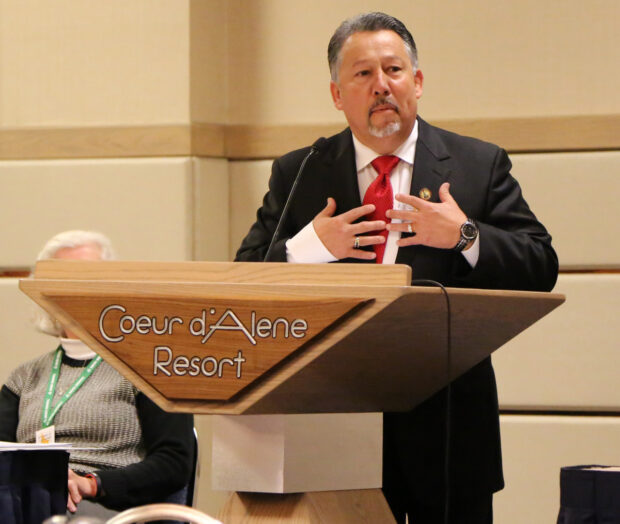The West Ada School Board is proposing a plan for the state to pick up half the tab for local school bond issues.
Board member Mike Vuittonet and the rest of the board will push the proposal via a resolution on Friday during this week’s Idaho School Boards Association annual conference.
If the resolution gains traction and is ultimately passed into law by the Legislature, it would represent a significant change to the way school bonds are paid for. Its long been the case in Idaho the local property owners pay for bonds through increases in local property taxes.
To be sure, this is a long-shot effort. The ISBA’s executive board is recommending its members do not pass the resolution, and West Ada doesn’t have a legislative sponsor lined up, though it has shopped the proposal around.
West Ada’s resolution calls for using “sales tax revenue from new construction to supplement the costs of future school bonds…” Specifically, Vuittonet and West Ada spokesman Eric Exline said the money would come from new revenue in the state’s general fund — not an increase in the sales tax.
“I don’t want to raise the sales tax,” Exline said. “If you have to do that, you’re defeating the idea.”
In that regard, Vuittonet and Exline are pitching the proposal as a way to cut taxes for local property owners. West Ada worked with financial analysts to track the value of successful bond issues in Idaho between 1998-2016. They found voters collectively approved more than $2 billion worth of bonds that also came with about $900 million in interest. If the state had paid for half of the cost of those bonds, it would have reduced local property taxes by $1.49 billion, West Ada said.

“I want my taxes lower,” Vuittonet said. “We could lower the levy rate by a half. This is a big idea. It’s about reducing our tax burden.”
West Ada is the state’s largest district and it continues to grow. If this plan is approved, West Ada property owners would stand to benefit.
Exline proposes creating the program through legislation, and establishing a fund, which the Legislature would build up over a period of a few years before the state would start to pick up the tab. Then, once a sufficient balance was reached, the state could start picking up a portion of the tab.
West Ada’s challenge will be to convince legislators to champion the idea. The state already faces steep competition for general fund dollars — whether it’s for schools, roads and bridges, health care or a potential new prison. ISBA leaders have said they won’t support new spending initiatives for education until the career ladder salary law is fully funded and schools’ discretionary spending levels are returned to pre-recession levels.
West Ada’s plan also banks on state revenues continuing to rise. The cyclical nature of the economy suggests that won’t always be the case. Heck, it might not even be the case this year. In October, state revenue was down $10.1 million from the previous October due to lower than expected individual income tax collections, the Legislative Services Office said last week. And through the first four months of the state’s current budget year, state revenues came in $47.3 million below the latest forecast.
Superintendent of Public Instruction Sherri Ybarra is also planning to ask the Legislature for a $19.1 million supplemental appropriation for her school safety program. If the Legislature approves any of the mid-year supplemental requests, that would also reduce the state’s estimated ending budget balance.
As ever, competition for state revenue remains strong, and West Ada’s request adds to that competition.
For Exline, the issue boils down to a philosophical question – “who should be responsible for the cost of schools?” In 29 other states, he said, there is a program where the state pays at least a portion of the cost and doesn’t leave the entire burden to local property owners.
